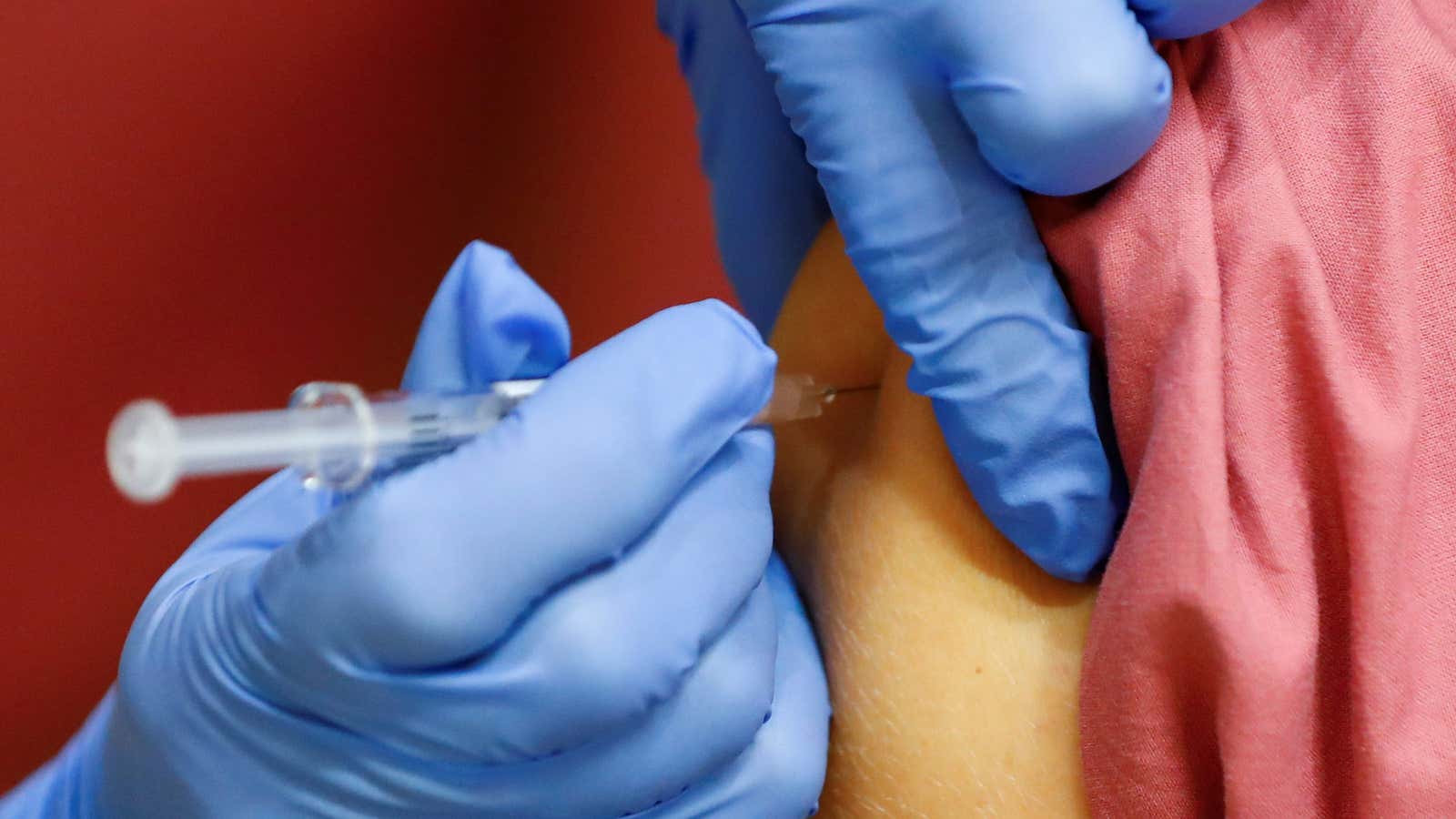Vaccines can only stop a pandemic if people take them.
A survey of over 18,000 adults across 15 countries found that, as of Oct. 2020, people living in India were the most open to receiving a Covid-19 vaccine, if one were available today. But the results, assembled by market research firm Ipsos on behalf of the World Economic Forum, show many countries where vaccine acceptance levels could hobble efforts to slow the virus’ spread.
At the time of writing (Nov. 5), India has the second highest Covid-19 case count, with over 8.3 million total cases; the US is ahead of India by more than 1 million cases. India’s daily case counts are in decline, whereas case counts in the US are climbing again; in the last week alone, America added over half a million cases.
Curiously, as the pandemic has worn on, willingness to receive a Covid-19 vaccine has gone down around the globe. In just two months, from August to October, the proportion of global respondents who said they would receive a vaccine dipped from 77% to 74%.
Again, India remained a bit of an outlier, with 87% of respondents consistently stating that they’d be willing to take the vaccine—possibly due to the country’s decade-long government vaccination campaign, or the fact that potential recipients in India will be getting a vaccine made within the country.
According to Ipsos, about a third of the respondents who said they wouldn’t take a Covid-19 vaccine were concerned that it was moving too quickly through clinical trials, or that it would have dangerous side effects.
It’s true that manufacturers have accelerated typical research and development timelines because of the scale of the pandemic. The process of finding a vaccine candidate and conducting clinical trials, which normally takes between 10 and 15 years, will likely be completed within the span of months. Yet the US Food and Drug Administration has stated that it will only authorize a vaccine that is proven safe by following clinical trial participants for at least two months, and is at least 50% effective in minimizing symptoms or preventing Covid-19.
Both AstraZeneca and Johnson & Johnson paused their vaccine trials earlier this year to investigate a few adverse events in participants. But that’s not necessarily a sign that the vaccines themselves are dangerous: Instead, it shows that those conducting the trials are taking their safety profiles seriously. After internal and external investigations that determined the events were not vaccine side effects, both companies have started up their clinical trials once more.
At the moment, none of the hundreds of Covid-19 vaccines in the research pipeline are ready for primetime. A handful, like those from Pfizer, AstraZeneca, Moderna, and Sinovac, are in late-stage clinical trials that could wrap up within the next few months. Vaccines will undoubtedly play a role in the way that the pandemic comes to an end, but they’ll only work if they reach everyone who needs them.
